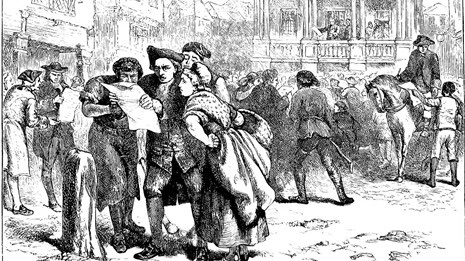This articles describes the impact of the Sugar Act of 1764.

The Sugar Act of 1764 was a British law passed by the British government in order to raise revenue from the American colonies. The law placed a tax on sugar and other goods imported into the colonies, and was intended to help pay off the large debt the British government had accumulated during the French and Indian War.
The Sugar Act was a significant change from previous British trade policies towards the American colonies, which had largely been based on a lack of enforcement. Under this policy, the British government had largely left the colonies to govern themselves, and had not imposed many taxes or trade restrictions on them.
The Sugar Act was met with widespread opposition in the colonies, as many colonists felt that it was a violation of their rights as British subjects. They argued that they should not be taxed without their consent, and that the tax would hurt their economic interests.
The Sugar Act led to a significant increase in smuggling and other forms of resistance in the colonies. Many colonists began to evade the tax by importing goods through illegal channels, and others began to organize protests and boycotts against the law.
The Sugar Act was also one of the first steps in a series of British actions that would eventually lead to the American Revolution. The law, along with the Quartering Act of 1774 and the Stamp Act of 1765, contributed to growing resentment and anger towards the British government among the colonists, which ultimately led to the decision to break away from British rule
Overall, The Sugar Act of 1764 was a significant event in the history of the British colonies in America. The law, which placed a tax on sugar and other goods imported into the colonies, helped to raise revenue for the British government but also met with widespread opposition and resistance among the colonists, and also led to a series of actions that would eventually lead to the American Revolution.
Related activities
Advertisement

